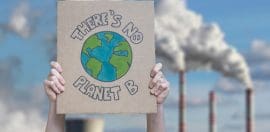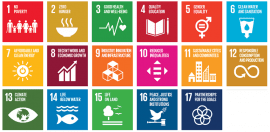SDGs Gender Equality Tool Hopes to Ignite Global Change

19 September 2018 at 4:20 pm
It is hoped a new tool measuring gender equality against the United Nations Sustainable Development Goals (SDGs) will equip advocates with the evidence to influence policymakers and ignite global change.
The Equal Measures 2030 (EM2030) SDG Gender Index launched on Wednesday, providing a comprehensive measure of overall progress towards gender equality goals aligned to the SDGs.
EM2030 director Alison Holder said the index’s countries of focus for 2018 – Colombia, El Salvador, India, Indonesia, Kenya and Senegal – demonstrated how the world’s most pressing challenges had a disproportionate impact on women.
“If we look at gender equality across all the SDGs, there is huge variation in country performance. None of the six countries we studied were leaders on every SDG and every country has major gender equality challenges they are grappling with,” Holder said.
“This is why we need a new index to measure and track performance… It is imperative that we get robust data on gender to those who need it, when they need it, and in a form they can use for maximum impact.”
The index was developed in partnership with nine leading regional and global organisations from civil society, and the development and private sectors – including the Gates Foundation, ONE Campaign, and PLAN International.
The six countries covered in the 2018 pilot represent 22 per cent of the world’s female population and by 2030 will be home to almost 1 billion girls and women.
Gayle Smith, president and CEO of the ONE Campaign said: “In 2015, 193 countries pledged to end gender inequality by 2030. Three years in, only a handful of countries are making the policy, legal and budgetary changes that are required.
“The world needs to speed up now – if we don’t, we’ll leave massive economic benefits on the table and miss an opportunity to build the world we want.”
Data drives change. In 90 seconds, learn about @Equal2030 and how they use #data and evidence to drive advocacy and action. pic.twitter.com/O7DqTkLA48
— Plan International (@PlanGlobal) September 18, 2018
The index demonstrated common challenges and opportunities to deliver greater equality for girls and women across the six countries.
“In some countries, the presence of laws and commitments have not translated into real change for girls and women (for example El Salvador’s continually high prevalence of [gender-based violence] and Kenya’s lack of land ownership among women),” the index report said.
“Whereas in other countries, strong legal frameworks that would promote and protect the rights of girls and women can be overridden by customary law (including legislation on the age of marriage in India, Indonesia and Senegal).”
EM2030 and research firm Ipsos Mori also surveyed more than 600 gender advocates from nearly 50 countries on gender equality progress, data challenges and the SDGs.
Results showed 89 per cent agreed achieving the SDGs for girls and women would not be possible without the right data, but 91 per cent believed collecting relevant data was not a priority for governments.
Françoise Girard, president of the International Women’s Health Coalition, said data could be used as a guide for collaboration and innovation.
“But, as advocates in our 50-nation survey indicate, unless we can thoroughly track meaningful actions to deliver gender equality and hold governments to account, the SDGs will remain an elusive promise for girls and women,” Girard said.
EM2030 will launch an expanded index with “as many countries as possible” in June 2019.







